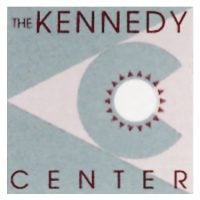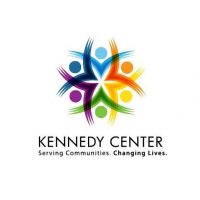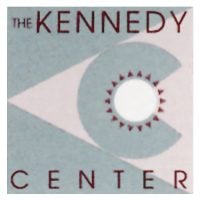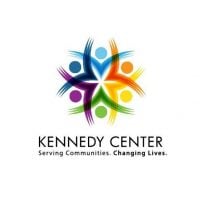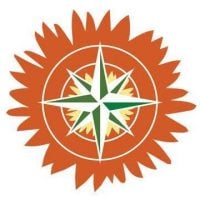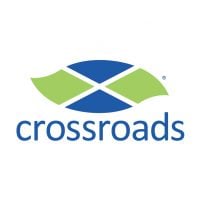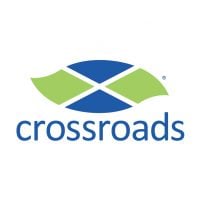Grace Home
Drug Rehab Center in Vance, South Carolina
Grace Home, an addiction treatment facility in Vance, South Carolina, offers comprehensive drug rehab services including inpatient levels of care, aftercare support, and access to 12-step programs to help individuals achieve long-term sobriety and regain control of their lives.
About This South Carolina Facility
Grace Home is a trusted drug treatment center located in Vance, South Carolina. Founded on principles of compassion and expert care, Grace Home has been providing crucial support to individuals suffering from alcoholism, opioid addiction, substance abuse, and drug addiction. With a total capacity of 16 beds, this facility offers an intimate setting where patients can receive personalized attention throughout their recovery journey. Grace Home specializes in providing high-quality aftercare support and offers multiple levels of care, including inpatient rehab.
At Grace Home, individuals struggling with addiction have access to comprehensive services that address the root causes of their substance abuse problem. The facility employs evidence-based treatments such as behavioral therapy and individual counseling sessions to support patients on their path to sobriety. Additionally, Grace Home prioritizes aftercare and provides ongoing support during the transition back to everyday life to ensure long-term success. The staff at Grace Home is dedicated to fostering a nurturing environment where individuals can heal physically, emotionally, and psychologically from the grips of addiction.
Genders
Ages
Modality
Additional
Conditions and Issues Treated
Substance Abuse Treatment is important when getting sober, as it helps addicts learn the skills they need to live a clean life. There are many different kinds of recovery treatment, including medication-assisted therapy, behavioral therapeutic approaches and self-help groups, as well as counseling.
Opioid abuse has become a national epidemic in the last decade. The US has one of the world’s highest rates of opioid use and abuse, as well as opioid-related deaths. Opioids are classified as Schedule II-IV controlled substances in the US due to their high potential for abuse.
Oxycodone, hydrocodone, methadone, and fentanyl are the most common Opioids and are commonly prescribed to treat pain. Tolerance to opioids develops over time, making life difficult, if not impossible, without them. Opioid users often obtain the drugs illegally. They can be drug dealers, friends, or family members who do not have valid prescriptions.
The desire for a more intense high than prescription opioids can quickly lead to heroin use. Heroin users are more prone to illness and death due to the high risk of overdose.
Many opioid addicts who seek treatment believe that the only way to overcome their addiction is through medical detox and long-term drug addiction rehab. To help patients wean off their addiction and reduce the risk of overdose, medication-assisted therapy (MAT) involves prescribing a replacement opioid. Doctors use MAT in conjunction with other anti-craving medications to help patients maintain recovery. Due to the high risk of relapse, MAT is often combined with individual and group counseling and social support programs.
Levels of Care Offered at Grace Home
This center offers a variety of custom treatment tailored to individual recovery. Currently available are Aftercare Support, Drug Rehab, Inpatient, with additional therapies available as listed below.
Inpatient treatment centers offer a safe, secure, and often medically supervised environment for drug or alcohol-addicted individuals. Many of these facilities are equipped to provide detoxification, treatment for co-occurring mental health disorders, and aftercare programs. The patient typically spends 28 to 30 days at the facility and will receive extensive drug counseling.
Aftercare support is vital to the success of someone in drug or alcohol treatment. It involves assisting with entering a sober living home, getting career counseling or educational assistance and even getting the individual lined up with programs like AA and NA. This support helps recovering addicts readjust to normal day-to-day activities and maintain sobriety.
When a person is in drug or alcohol treatment, they have to increase their focus on themselves. They need to learn how to recognize the triggers that cause them to relapse and learn the habits that would benefit them if they were to be sober. This is all part of the growth in recovery, and aftercare is essential to that process.
Therapies & Programs
At Grace Home , to learn from past mistakes and improve one’s situation, the recovering person meets individually with a therapist. The counselor or therapist will address addiction causes, triggers, mental issues, dual diagnosis, and aftercare plans during this time. This is a very intense and challenging process. Some clients find it easier to open up to someone other than family or friends who understand their struggles with addiction.
Couples therapy sessions are typically used to help couples in recovery from drug addiction work through their issues. These types of sessions can be beneficial for many reasons, including the fact that they add a layer of accountability when both partners in a couple are recovering from addiction.
Therapy can also provide addicts with another effective way to cope with stress and avoid relapse during difficult situations. This type of therapy can help improve communication with their partners, which can strengthen the relationship and prevent future problems that might lead to relapse.
Family therapy is a crucial part of drug treatment and getting sober. It is one of the most effective ways to help addicts stay on the path to long-term sobriety. An addict’s family can play a vital part in helping them to avoid relapse. They can spot the warning signs and help them get back on track.
In group therapy, recovering addicts meet with a therapist and other people in recovery. Some groups are closed, meaning only people who share the same addiction or problem can attend. Others are open to anyone who wants to stop using drugs or drinking alcohol. Group therapy sessions typically focus on one topic each week or month so that recovering addicts can discuss issues they face daily.
Drug and alcohol addiction can lead to a breakdown in life skills. Learning certain life skills can help those who are struggling with addiction. Life skills training at Grace Home in Vance, SC teaches patients skills such as time management, budgeting, and social abilities to improve their quality of life and prevent relapse.
An addict’s life skills are maladaptive, meaning they are counterproductive. An addict may have learned poor time management skills growing up, have a hard time budgeting money, or be socially awkward. An addict’s poor life skills can lead to relapse and the inability to achieve long-term sobriety. Life skills training teaches patients effective coping mechanisms, which can help them live a clean and sober life.
Nutrition therapy has been used to help drug addicts for decades. Many early reports on addiction treatment indicate that some patients recovered from the “satisfying power of food”. For years, this phenomenon has been utilized as a treatment modality in eating disorders for adults, adolescents, and children.
Specific nutrients have been identified that influence neurotransmitters associated with reward pathways of the brain. Studies have shown that carbohydrate loading with complex carbohydrates to elevate serotonin levels was effective in treating bulimia nervosa. This approach prompted researchers to explore the use of this type of nutritional intervention in other disorders.
The goal of nicotine replacement therapy is to provide a safe alternative for people trying to quit smoking. It does this by giving small doses of nicotine that help manage cravings while breaking habits associated with cigarettes.
Nicotine Replacement Therapy (NRTC) uses products like skin patches and gum that deliver low-dose nicotine, which prevents cravings in those quitting. This makes it easier for them to make a gradual transition from smoker to non-smoker.
Patient Experience
Creative Arts
Creative arts therapy is an expressive process that helps people in recovery explore feelings and emotions. While the goal isn’t always to create a final product, it’s therapeutic for many patients. They can express themselves by journaling or other forms of creative expression. Activities include sketching, painting, sculpting, etcetera. All help them handle stress and anxiety better than before their addiction (and even when they were). The activity improves communication skills and the ability to process traumatic events from one’s past, often triggered during periods of withdrawal/relapse. This benefit makes this form of treatment popular among addicts who don’t want prescription drugs but need something more substantial than talk sessions with counselors.
Experiential Therapy at Grace Home
Experiential Therapy is a different way of thinking about addiction treatment. It uses physical activities to help work through troubling emotions, memories, and trauma that are sources of psychological issues like addiction.
Experiential Therapy can be an effective option for those who have struggled with past traumas or challenges associated with life decisions such as drug use. The non-traditional approach helps people deal more effectively with these struggles. It also allows them to gain new perspectives on their behavior patterns by recreating experiences in healthy ways rather than continuing old habits that may no longer serve them.
Fitness Therapy
People in drug recovery can improve their physical and mental health by engaging in fitness therapy. Exercise releases feel-good chemicals and can boost self-esteem. Discipline can be practiced through an exercise regimen. Studies have shown that exercise increases abstinence rates, eases withdrawal symptoms, and improves depressive symptoms for those in addiction treatment. Fitness therapy at a rehab center can include activities like swimming or jogging to promote movement and enhance the general level of fitness of the individual.
Payment Options Accepted
For specific insurance or payment methods please contact us.
Additional Details
Specifics, location, and helpful extra information.
Vance, South Carolina 29163 Phone Number(803) 854-9809 Meta DetailsUpdated November 25, 2023
Staff Verified
Patient Reviews
There are no reviews yet. Be the first one to write one.
Vance, South Carolina Addiction Information
More than 610,000 of South Carolina residents, or a staggering 11.9% of the state population, uses illicit drugs and another 230,000 residents abuse alcohol every year. A majority of the illegal drugs used and abused are opioids. Marijuana use and underage drinking occur amongst the young residents of this state–though at a lower rate compared to the national average.
Treatment in Nearby Cities
- Simpsonville, SC (135.7 mi.)
- Beaufort, SC (70.8 mi.)
- Clinton, SC (107.7 mi.)
- North Augusta, SC (86.1 mi.)
- Goose Creek, SC (40.9 mi.)
Centers near Grace Home
The facility name, logo and brand are the property and registered trademarks of Grace Home, and are being used for identification and informational purposes only. Use of these names, logos and brands shall not imply endorsement. RehabNow.org is not affiliated with or sponsored by Grace Home.


